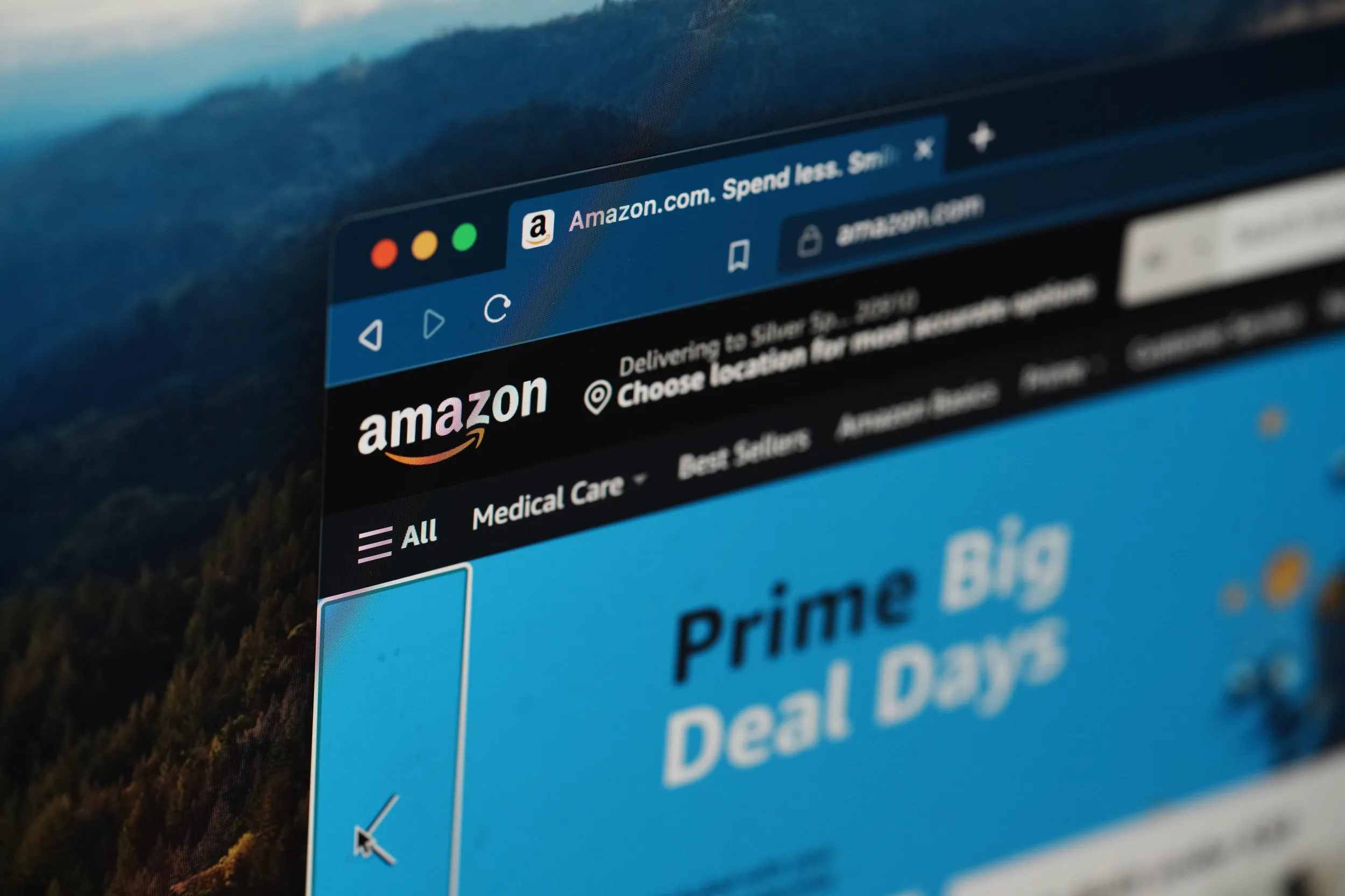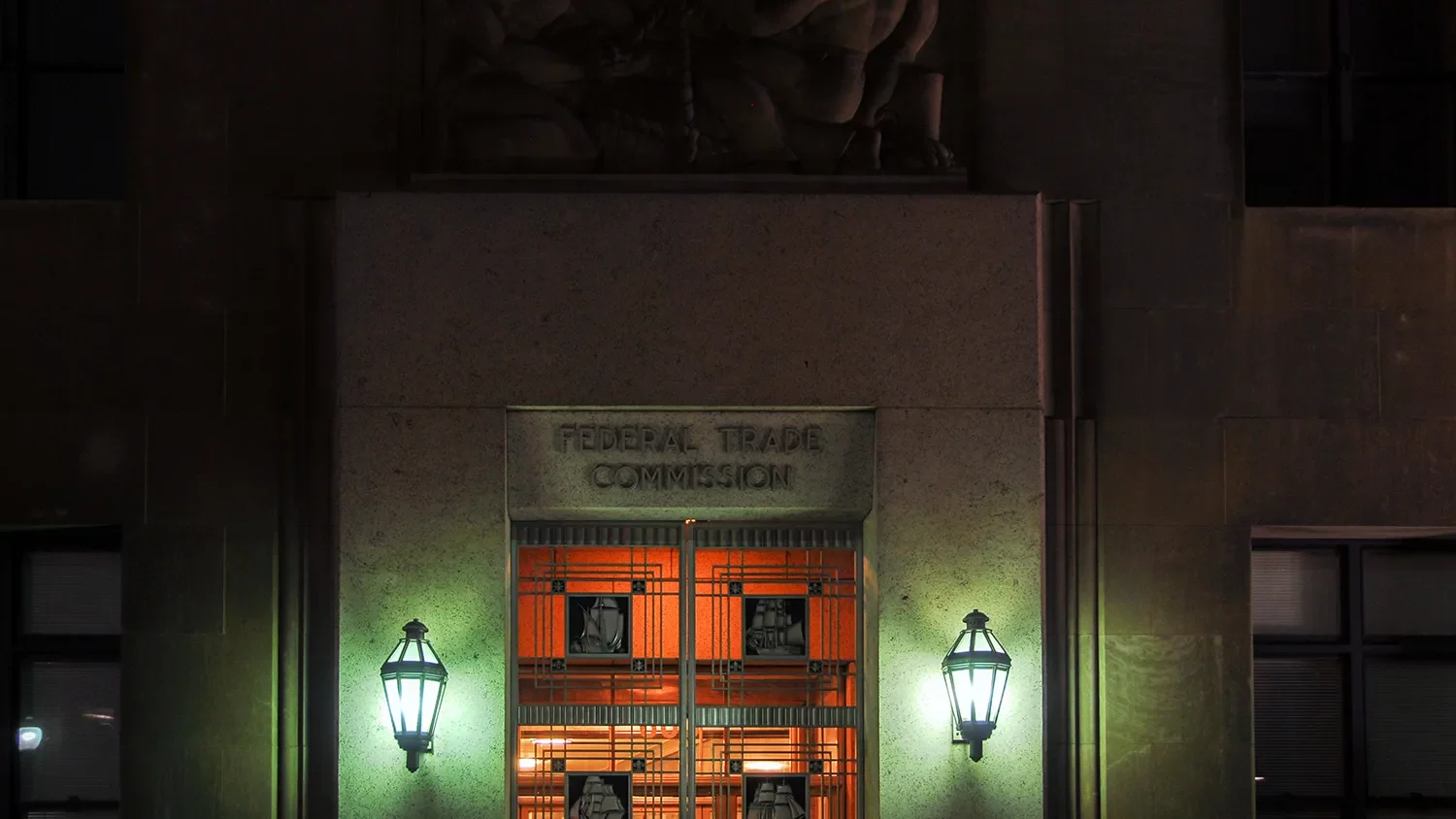FTC Hearing #14: Roundtable with State Attorneys General
The FTC held its 14th and final hearing in the series on Competition and Consumer Protection in the 21st Century on June 12, 2019 in Omaha, Nebraska. Morning sessions featured Attorneys General (AGs) and their senior staff from across the U.S., discussing consumer protection and antitrust enforcement. Afternoon sessions featured panels on consumer protection remedies and the limits of antitrust.
The hearing began with a welcome from Jacob Hamburger, Attorney Advisor at the FTC Office of Policy Planning, followed by opening remarks from Creighton University Provost Dr. Thomas Murray.
Panel 1: Consumer Protection Enforcement and Policy (Panel A)
Jason Ravnsborg, the Attorney General of South Dakota, kicked off the first panel of the day. Ravnsborg emphasized that while most enforcement actions to protect consumers are designed to be reactive, AGs should also be proactive in addressing consumer concerns. Ravnsborg also conveyed his support for the National Association of Attorneys General (NAAG) and closed by stating that the “combined power of all AGs individually, NAAG, and the FTC can give us the best chance to address these issues and keep the public safe.”
Ben Wiseman, the Director of the Office of Consumer Protection at the DC Office of the Attorney General, noted that privacy and consumer protection concerns surrounding large tech companies have become one of the DC AG’s top priorities. Wiseman identified two issues: (1) the intersection of data privacy, equality, and opportunity; and (2) the consumer protection issues related to tech platforms in the sharing economy. He suggested three priorities: (1) broaden the focus of privacy conversation to be more inclusive; (2) fill transparency and information gaps by using available investigative tools when appropriate; and (3) use new legal theories and consider the application of an unfairness theory to address certain privacy harms.
Other State AGs also discussed pressing issues in their respective states. Jeff Mateer, the First Assistant Attorney General of Texas, raised concerns as to whether big tech companies were misleading users when they represent themselves as being viewpoint neutral; he also expressed his concern about the monitoring and regulation of free speech by digital platforms. Kaitlin Caruso, the Deputy Director of the New Jersey Attorney General’s Division of Consumer Affairs, spoke about cybersecurity and privacy issues for New Jersey. She stated there is more to consumer injury than just readily quantifiable individual economic harm; dignitary and non-monetary harms are real. Caruso cautioned against “overreact[ing]” and overhauling the existing laws in light of these concerns, however.
The panelists agreed that there is a lot of room for cooperation among states and across party lines on consumer protection issues.
Panel 2: Consumer Protection Enforcement and Policy (Panel B)
The second panel continued the previous discussion on consumer protection enforcement and policy. Matthew du Mee, the Unit Chief Counsel for the Consumer Litigation Unit of the Arizona Attorney General’s Office, spoke first. Du Mee addressed the topic of consumer restitution, commending the FTC for its work on the matter and arguing that it should be a top priority in states as well. He noted that in many cases AGs are in a unique position to get results for consumers, and put forth civil penalties as a powerful and appropriate tool in many cases to achieve restitution as AGs can facilitate it more quickly than other actions. Du Mee also felt that the FTC should reconsider its policy on suspended judgements, arguing that such measure would create perverse incentives for companies facing civil penalties to avoid restitution by spending the money in question.
Crystal Utley Secoy, a Special Assistant Attorney General in the Mississippi Attorney General’s Consumer Protection Division, discussed the relationship between the FTC and state AGs. She believes that collaboration with the FTC is extremely valuable on matters of national impact yet that it is also very important for states to maintain their independent ability to protect consumer privacy. Utley Secoy also went on to say that “we don’t have to reinvent the wheel, the European Union and California have made great strides in privacy principles.”
John Abel, a Senior Deputy Attorney General in the Pennsylvania Office of the Attorney General’s Bureau of Consumer Protection, spoke about his guiding principle in consumer protection enforcement: privacy. He stated that “protecting consumer data must be recognized as a priority from an expenditure standpoint and the viewpoint of the C-suite.” Abel also echoed the sentiment that state AGs are closer to consumer concerns than federal agencies and therefore play an important and distinct role in protecting consumers.
Panel 3: Antitrust Enforcement and Policy (Panel A)
The third and fourth panels of the morning focused on antitrust enforcement.
Jeff Landry, the Attorney General of Louisiana, argued that there is a severe disruption in the virtual marketplace and that certain companies hold dominance in the ad ecosystem.
Doug Peterson, the Attorney General of Nebraska, noted that both the states and the FTC take their enforcement responsibilities very seriously but further suggested that policymakers should be aware of the importance of data and emerging concerns in an AI-driven world. Finally, he argued that the Consumer Welfare Standard (CWS) is adaptable to the new tech platform economy and is capable of handling concerns emerging from new technology.
Herbert H. Slattery III, the Attorney General of Tennessee, discussed three topics: (1) data ownership; (2) market concentration; and (3) regulatory reform. Slattery expressed concern over who owns the data used by many of these companies. Do the consumers own the data or the companies that accumulate the data? He believes that the individuals own their data and companies who want to use that data need to do so with full disclosure and informed consent from users. However, Slattery noted that these are complex businesses and if regulators impose a substantial costly burden on entering the market, it will likely exclude emerging businesses that are unable to meet regulatory standards and further solidify the incumbents’ positions.
The Attorneys General all agreed that there were important roles for the states and the federal government to play. They also held the same wariness of large technology companies’ actions but cautioned on the harm of over-regulation.
Panel 4: Antitrust Enforcement and Policy (Panel B)
Eric Newman, the Chief Litigation Counsel for the Antitrust Division of the Washington State Attorney General’s Office, discussed his office’s work on franchise agreements and their mission to eliminate no-poach provisions. Newman cited the lawsuit brought against Jersey Mike’s by the Washington State AG’s Office as one example of its efforts.
Max M. Miller, the Assistant Attorney General (Antitrust) in the Iowa Attorney General’s Office, discussed antitrust in the agricultural industry, stating that “it was America’s farmers who inspired us to pass the first antitrust statutes, but ironically it is perhaps they who today are suffering the most under the yoke of concentrated corporate power.”
David N. Sonnenreich, a Deputy Utah Attorney General and the Director of the Antitrust Section of the Utah Attorney General’s Office, discussed the wide-ranging areas of expertise that states should take advantage of to inform antitrust enforcement and policy. Sonnenreich suggested continuing to hold common-ground regional conferences to improve cooperation between state and federal authorities. He additionally supported revitalizing the joint enforcement committee with an emphasis on improving collaboration and streamlining processes.
Sarah Oxenham Allen, a Senior Assistant Attorney General and Unit Manager of the Antitrust Unit in the Virginia Attorney General’s Office and Chair of NAAG’s Antitrust Multi State Task Force, discussed occupational licensing by states. Oxenham Allen stated that states often fall on the opposite side from the FTC on the matter of occupational licensing.
All panelists agreed this is a very exciting time for antitrust and emphasized that working together through state and federal cooperation is key to resolving antitrust issues now and in perpetuity. However, while some panelists argued that current antitrust standards and the CWS are adaptable enough to address issues in the digital market economy, others felt that these standards needed to be reevaluated in the face of emerging concerns.
Panel 5: Consumer Protection Remedies: Economic & Legal Considerations
The afternoon panels began with a discussion on economic and legal considerations for consumer protection remedies, which was moderated by James Cooper from the FTC Bureau of Consumer Protection. Professor Murat C. Mungan began with an explanation of optimal liability. He discussed how the probability and security of punishment could affect a potential offender’s incentives. He explained that as companies have different costs of compliance, they may be incentivized to commit crimes if the cost of compliance exceeds the cost of punishment—in other words, companies comply with laws if the cost of compliance is smaller than expected sanctions. Consequently, it is optimal to set harm to the expected cost of non-compliance.
Jonathan Klick, Professor at the University of Pennsylvania Law School, further added to the discussion between incentives, compliance, and cost by giving an example of an Israeli daycare’s policy. In an effort to penalize parents who showed up late, the daycare charged a fee to late parents. While the daycare thought that the penalty would incentivize parents to be on time, the opposite occurred—the parents saw the penalty as payment in a commercial transaction and showed up late more frequently. The case study demonstrated that if the benefit to a parent from showing up late (i.e. being productive at work) is less than the cost of working late (i.e. the penalty fee), the parent would overwhelmingly choose to pay the penalty; the daycare hadn’t priced out the harm of showing up late proportionately.
Shifting the conversation from incentives to judicial trends, Gus Hurwitz, Professor at Nebraska College of Law, discussed Section 13(b) of the FTC Act. He noted that courts had found that the purpose of 13(b) was to facilitate FTC enforcement, and not to be used as a new avenue of authority. He thought that at least five Supreme Court Justices today are quite hostile to the FTC’s enforcement authority, and that this hostility could potentially trickle down to the State Attorneys General. He argued that this sharply contrasts with the broad judicial deference to agencies in the 1980s. While the FTC routinely uses 13(b) to obtain billions of dollars a year in remedies, Hurwitz thought that the FTC isn’t fully aware of how their enforcement power will be received by the judiciary.
Panel 6: Revisiting the Limits of Antitrust
Thomas Lambert, Professor at the University of Missouri School of Law, summarized some of the key points made in Judge Easterbrook’s article,The Limits of Antitrust. The article described two types of errors in antitrust: Type 1 errors, which are errors in which you preclude behaviors that may be output or welfare-enhancing (false convictions), and Type 2 errors, which are false acquittals. Judge Easterbrook considered Type 2 errors less harmful because they are self-correcting. Judge Easterbrook proposed the need to consider certain questions in order to avoid both these errors. Antitrust authorities should ask whether the defendant has market power, if the plaintiff is a customer or competitor, and whether the challenge practice enhances the defendant’s profits by reducing competition. Lambert added another question to Easterbrook’s list of questions: is there another body of law capable of addressing the anticompetitive harm at issue?
Alan Devlin, Counsel at Latham & Watkins, prefaced the debate by arguing that the practice of antitrust inherently calls for value determinations. Does one believe in the utility of markets to deliver superior outcomes and to self-correct market failures? If so, that person would see no need for strong antitrust enforcement. Devlin then examined in-depth some of the arguments made in Easterbrook’s article. He first suggested that the article was incomplete, and that it doesn’t matter whether a Type 1 error is more socially costly than a Type 2 one. Devlin argued that the assumption that Type 1 errors are more harmful than Type 2 errors is far less obvious than Judge Easterbrook presumed, and therefore that policymakers should care about both.
John Thorne, Partner at Kellogg, Hansen, Todd, Figel & Frederick, dissected Judge Easterbrook’s rule of reason analysis, including questions that Judge Easterbrook believes should be considered in determining whether an action is anticompetitive or not, such as whether the defendant possesses market power, whether that conduct is natural, and whether that practice is widespread. Steven Cernak, Partner at Schiff Hardin, showed support for Judge Easterbrook’s article, saying that the motivating factors for Judge Easterbrook’s limits are as true before as they are now. He also suggested that perhaps there could be a more nuanced view of Type 1 and Type 2 errors for particular situations.
While the previous panelists discussed the substance of Judge Easterbrook’s article, Robert E. Litan, Partner at Korein Tillery, dove into the trends that have developed since Judge Easterbrook wrote his article. Litan mentioned that the “Chicago School” mostly “won” since Judge Easterbrook’s article and that courts have generally adopted the Chicago view. He also critiqued what he called the “populist narrative,” which, among other theories, is the idea that there is a growing concentration of companies. Litan argued that these concerns should be dissected in antitrust terms, and that policymakers should look at where the competition is actually taking place. For example, he argued that some industries at the local level have very little concentration; even at the national level, he argued that there is only a minor increase in market concentration. Looking at the market where a company doesn’t compete, he stated, distorts the bigger picture, adding that the economy is not as out of control as the populist narrative suggests.








